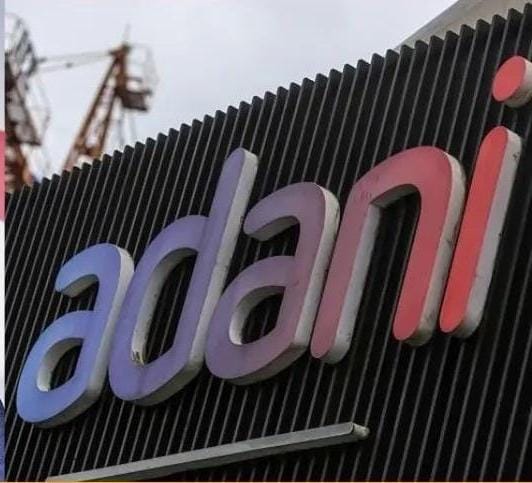Irene Maria
Adani Group stocks are in a downward spiral, warns finance influencer Akshat Shrivastava, publisher of Wisdom Hatch. Despite trading at high valuations, long-term buyers are not confident in the value of the purchase due to the company’s heavy infrastructure nature and inability to achieve 10X growth without significant acquisitions, which require funding.
“The situation at Adani Group highlights the dangers of investing in high-debt firms,” says Shrivastava. “The ripple effect of debt can have serious implications for retail investors, who should be cautious about their investments.”
The Adani Group has been facing controversy in recent weeks following a report by Hindenburg Research, which accused the Indian energy-to-infrastructure conglomerate of “pulling the largest con in corporate history” and engaging in “brazen stock manipulation and accounting fraud.” The report alleged that the activities helped push up the share prices of seven Adani Group companies and boosted founder and chair Gautam Adani’s net worth by over $100 billion in just three years.
The Adani Group has pushed back against the allegations, calling Hindenburg’s report “maliciously mischievous” and “unresearched.” It has also released two reports of its own, refuting the claims and alleging that Hindenburg’s actions were driven by a desire to book financial gain.
However, the controversy surrounding Adani stocks has led to a death spiral, according to Shrivastava. Despite being battered, Adani stocks are still trading at high valuations, but long-term buyers are not confident in their value. The business model of the Adani Group, which is heavily reliant on infrastructure, requires massive acquisitions in order to grow, but the group is struggling to refinance its debt. The declining value of its collateral, which includes Adani Green stocks that have fallen by 45% in just three days, is causing lenders to worry about the real worth of what they hold.
The group is struggling to refinance its debt, as banks that gave loans are now worried about the pledged stocks they own. Adani does not have the cash flows to repay the debt and rumors of liquidation could cause shockwaves. The recent poor retail participation in the recent follow-on public offering (FPO) is due to the stock’s price crash and difficulty for firms to justify the investment.
“With limited avenues to raise new money and high interest rates in the economy, the Adani Group is struggling to repay its debt,” says Shrivastava. “The group recently attempted to raise funds through a follow-on public offering (FPO), but poor retail participation and skepticism from institutional investors have made it difficult to justify this move.”
In conclusion, Akshat Shrivastava warns retail investors to be cautious of investing in high debt firms. “Debt creates a ripple effect and can have serious implications for investors,” he says. “Retail investors should carefully consider the risks before investing in any high-debt firm.”


